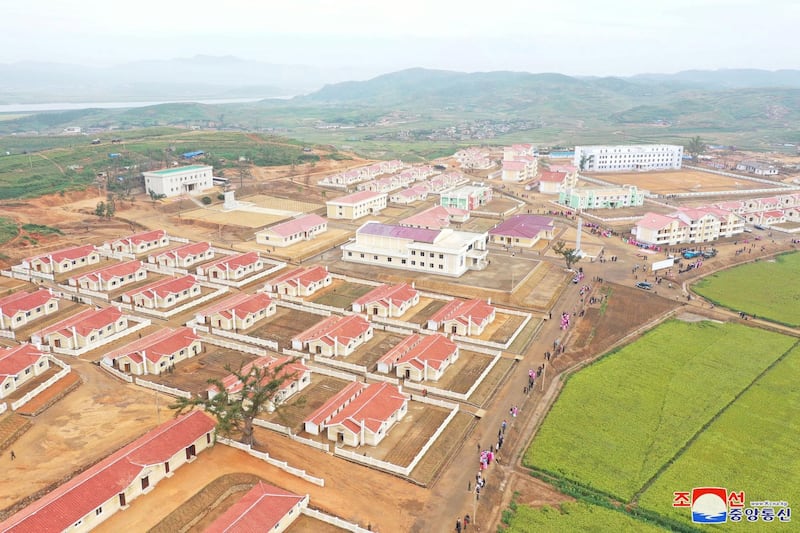The buyer meets the go-between in a vacant lot downtown. Money is exchanged and delivered to the seller, who in turn hands over the goods. But this kind of shady deal isn’t related to the drug trade or corporate espionage. It’s just another day in the North Korean real estate business.
Alarmed by the rise in such activity, the government is cracking down on private home sales this month, sources in the country told Radio Free Asia.
In North Korea, the government owns all property in principle, and it issues home-use permits that grant people the right to live in a house or an apartment for a specific period of time.
According to previous RFA reports, home sales are possible if one bribes the right officials, and the country has even experimented with allowing real estate speculation.
But authorities are now clamping down on real estate brokers, buyers and sellers ahead of spring, which is the peak season for people looking to change residences, sources say.
Because individual home ownership is technically illegal, brokers are said to be violating socialist policies and obscuring the foundations of the socialist system, a source in the northeastern province of North Hamgyong told RFA’s Korean Service on condition of anonymity to speak freely.
But she said that the recent crackdown is a deliberate attempt by authorities to catch the brokers in the act to extract more bribes from them.

In the capital Pyongyang, the moves come just as 10,000 new homes are about to hit the market, a source there told RFA on condition of anonymity for security reasons.
In 2021, the country’s leader Kim Jong Un unveiled an ambitious plan to build 10,000 new homes in the capital by the end of the year, and 50,000 by the end of 2025. Last week Kim attended a ceremony celebrating the completion of the latest batch of 10,000 such homes.
The Pyongyang resident said that most of these new homes will likely be sold using brokers, who usually take 5-7% of the sales price as commission.
“Most of the times when individuals buy and sell houses in secret, they go through brokers,” he said. “This is because some of the brokers are able to block the issuance of housing crackdown documents from regulatory agencies like the People’s Committee’s Urban Management Department and the Social Security Department.”
Raid on realtors
The crackdown has been going on for more than 10 days, according to the Pyongyang source.
“In early April, the Social Security Department drove into the vacant lot near Songyogak restaurant and arrested all the brokers gathered there,” he said.
The lot near the popular Pyongyang restaurant has been the center of the city’s private real estate market since the mid-1990s, with brokers on site to connect sellers and buyers and help negotiate prices, according to the Pyongyang source. But since the arrests, the department has maintained a presence there, preventing buyers, sellers, and brokers from gathering.
The term “housing decorators,” has become a slang phrase for real estate brokers in North Hamgyong, the source there said.
“In April, Chongjin began a crackdown on all housing transactions that were conducted through decorators,” she said. “There was a woman who got arrested after she introduced the sellers of an apartment home to some buyers.”
The woman was released only after a few days, according to the North Hamgyong source.
“People are saying that she got out because she closes so many housing transactions and she is close to the Social Security Department,” she said.
With North Korea in dire economic straits these days, homeowners have been making ends meet by selling their homes downtown to buy cheaper properties in the outskirts of the city, or by selling their modern apartments to buy inexpensive older single-story homes, according to the North Hamgyong source, but every private transaction is risky.
“If authorities discover any private housing transactions, the house is forfeited and all of the money in the transaction is seized,” she said.
“For ordinary residents who don’t have any power in society, it is much more advantageous to rely on a broker for the difficult issuance of house use permits,” she said, “and to smooth over any issues with authorities which might occur after the transactions are complete.”
Private housing transactions were always a risk even before the current crackdown, but now buyers and sellers need to be more cautious, the source said.
“If these crackdowns on housing transactions continue, it will be increasingly difficult for the powerless members of society who want to make ends meet by selling their house.”
Translated by Claire Shinyoung Oh Lee. Edited by Eugene Whong and Malcolm Foster.
